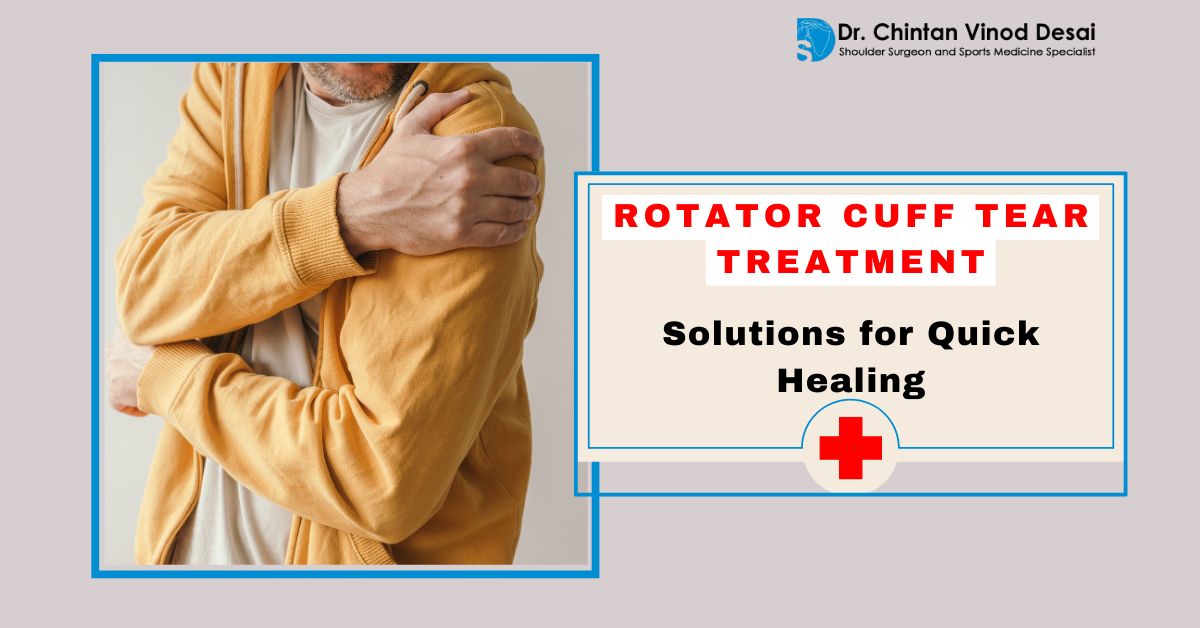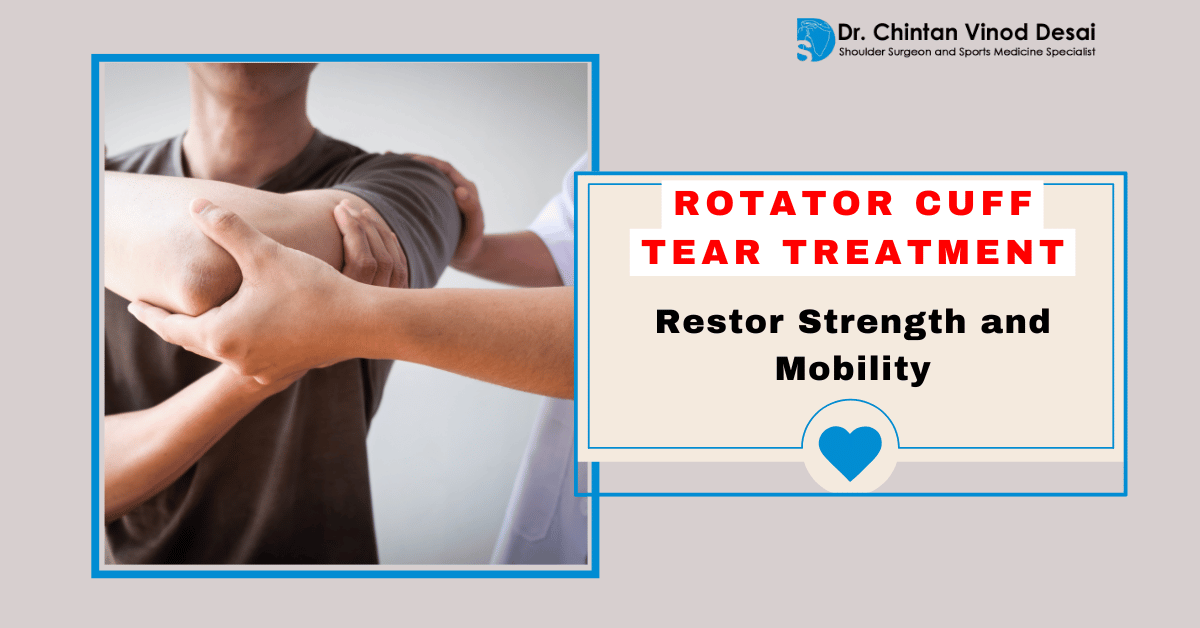Rotator Cuff Tear Treatment in Mumbai
Shoulder pain can disrupt your daily routine, limit your movement, and affect your quality of life. One of the most common causes of persistent shoulder pain is a rotator cuff tear. This condition affects people of all ages, particularly those who do repetitive overhead activities, sports, or have age-related wear and tear.
Mumbai residents dealing with shoulder discomfort now have access to advanced treatment options. This blog explains what a rotator cuff tear is, how doctors diagnose it, and which treatments help you recover faster. You’ll also discover where to find expert care in Mumbai.
What is a Rotator Cuff Tear?
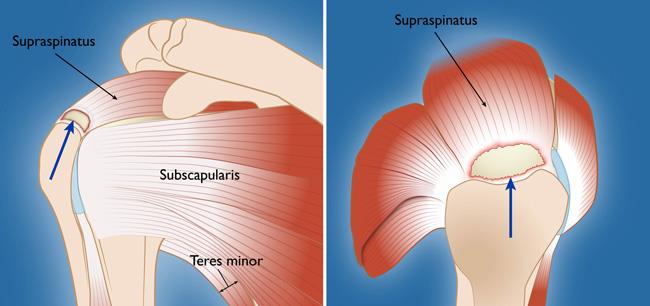
The rotator cuff is a group of four muscles and tendons that keep your shoulder joint stable and allow you to lift and rotate your arm.
A tear can occur from:
- Overuse or repetitive strain
- Sudden injury (like a fall)
- Natural degeneration due to aging
There are two main types:
- Partial tear: The tendon is damaged but not completely severed
- Full-thickness tear: The tendon is split into two or pulled away from the bone
Symptoms include:
- Persistent shoulder pain, especially at night
- Weakness while lifting or rotating the arm
- Difficulty reaching behind your back
- Clicking or popping sounds during movement
Diagnosis:
Getting a correct diagnosis is the first step toward healing.
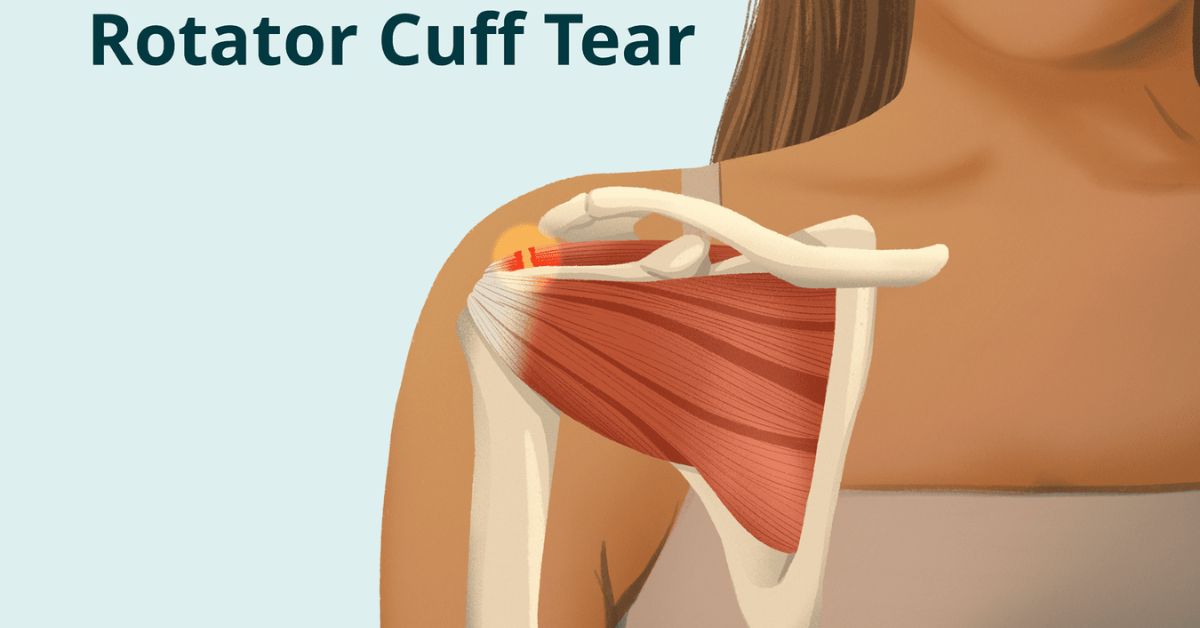
A shoulder specialist will:
- Review your medical history
- Perform a physical exam to test range of motion and muscle strength
- Use imaging tests like:
- X-rays to rule out other bone conditions
- Ultrasound to assess tendon movement
- MRI scans for a detailed look at the tear
- X-rays to rule out other bone conditions
Early diagnosis helps avoid complications and allows for faster recovery.
Treatment Options Available in Mumbai
Treatment depends on the size of the tear, severity of symptoms, and your activity level. Mumbai offers a wide range of modern treatment options for all kinds of rotator cuff injuries.
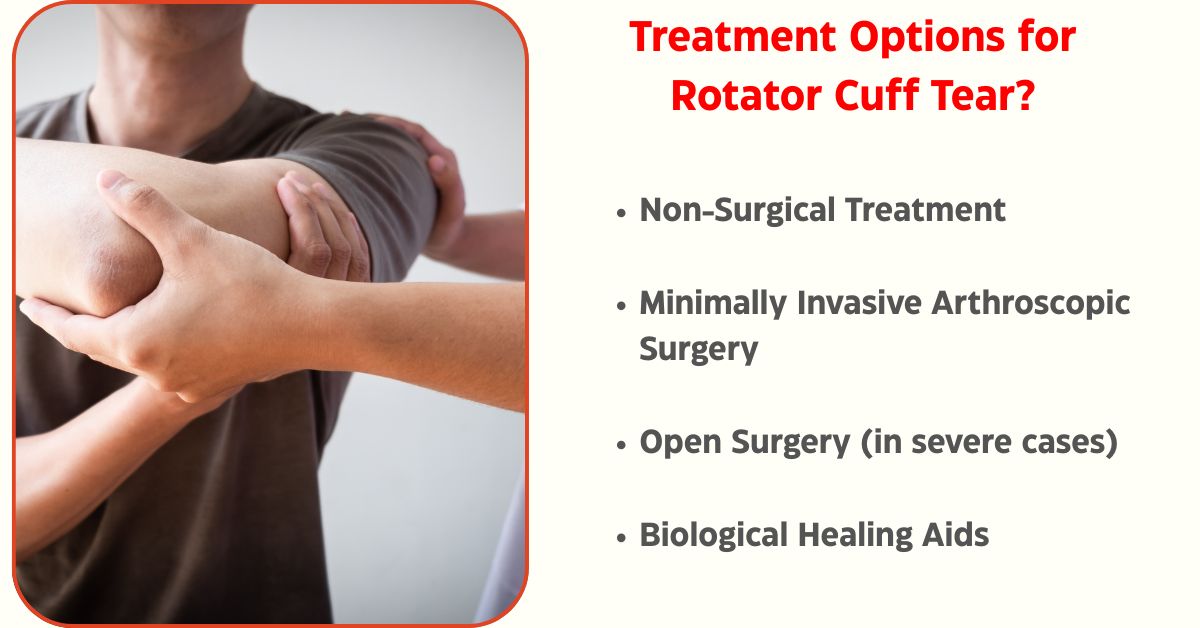
1. Non-Surgical Treatment
For small or partial tears, many patients recover with conservative management.
This includes:
- Rest and activity modification
- Physiotherapy to strengthen shoulder muscles
- Anti-inflammatory medications
- Steroid injections for temporary pain relief
These treatments can help reduce pain and improve function without surgery.
2. Minimally Invasive Arthroscopic Surgery
If symptoms persist or the tear is large, arthroscopic surgery is often recommended.
This is a keyhole procedure where:
- A small camera is inserted through a tiny cut
- The surgeon repairs the torn tendon using small instruments
- Patients experience less pain and a shorter hospital stay
Mumbai has highly trained surgeons who use this method for quicker healing and fewer complications.
3. Open Surgery (in severe cases)
In rare cases, open surgery may be required for massive or complex tears. This allows direct access to the torn tendon but may take longer to recover.
4. Biological Healing Aids
Some surgeons use platelet-rich plasma (PRP) or stem cell injections to enhance tendon healing. These are still under research but can be an option for specific cases.
Post-Surgery Recovery & Rehabilitation
After surgery, a structured rehabilitation plan is key to regaining strength and shoulder function.
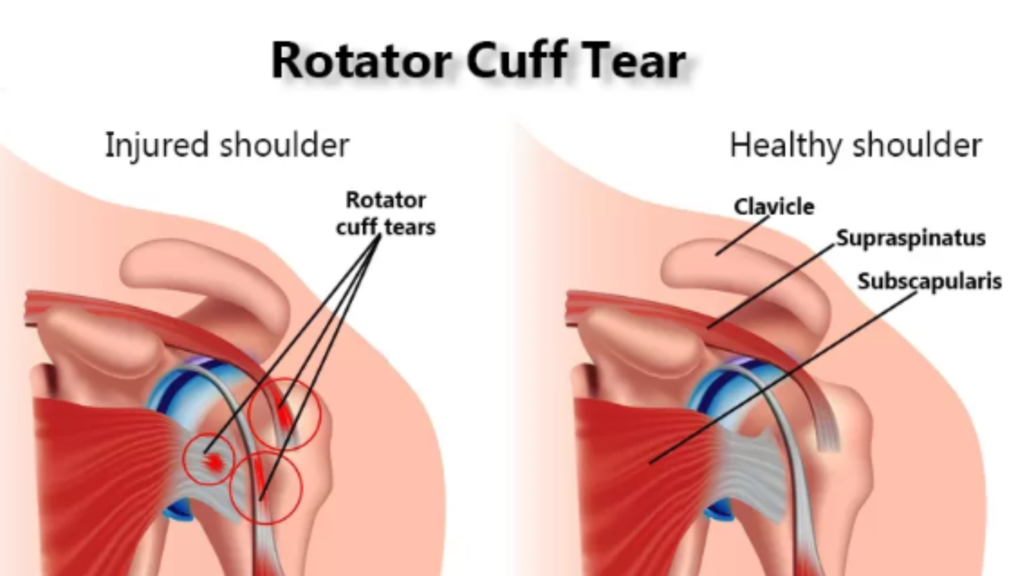
Typical recovery steps:
- Wearing a shoulder sling for a few weeks
- Gradual passive, active-assisted, and active movements
- Physiotherapy over 3–6 months
Regular follow-ups and home exercises ensure long-term success.
Ignoring rehab can lead to stiffness and incomplete recovery.
Why Timely Treatment Matters
Delaying treatment can worsen the tear and reduce the chances of full recovery. Chronic rotator cuff tears may lead to:
- Muscle atrophy
- Tendon retraction
- Permanent shoulder weakness
If you’re experiencing shoulder pain that’s not improving, consult a specialist early.
Where to Get Expert Rotator Cuff Treatment in Mumbai
Mumbai has multiple hospitals and clinics offering advanced diagnostic and surgical facilities. Whether you live in South Mumbai or the suburbs, quality care is accessible.
Choosing a skilled shoulder specialist ensures accurate diagnosis, the right treatment plan, and proper guidance throughout your recovery.
Dr. Chintan Vinod Desai is a consulting shoulder surgeon based in Mumbai. He specializes in treating shoulder conditions such as: Rotator cuff tears, Shoulder instability, Frozen shoulder, Impingement, Shoulder arthritis, Calcific tendonitis, etc.
Dr. Desai is known for using the latest surgical techniques and patient-focused treatment strategies. His goal is to help patients regain full shoulder function and return to daily activities without pain.
Frequently Asked Questions
1. Can a rotator cuff tear heal without surgery?
Small or partial tears often improve with rest, physiotherapy, and medication. Surgery is usually advised if symptoms persist or the tear is large.
2. How long does it take to recover after rotator cuff surgery?
Most patients recover in 4 to 6 months. Full recovery depends on the size of the tear, surgical method, and rehabilitation efforts.
3. Is rotator cuff surgery painful?
Some discomfort is expected, especially in the early days. Pain is managed with medications, and most patients feel significant relief within a few weeks.
4. What happens if a rotator cuff tear is left untreated?
It may worsen over time, leading to permanent damage, reduced mobility, and chronic pain.
5. When should I see a doctor for shoulder pain?
See a doctor if the pain lasts more than a few weeks, affects your daily activities, or prevents you from sleeping on the affected side.
Conclusion
A rotator cuff tear can impact your ability to work, play sports, or even carry groceries. The good news is, with early diagnosis and expert care, most patients make a full recovery. Mumbai offers advanced, effective treatment options—from physiotherapy to minimally invasive surgery.
Consulting a shoulder specialist like Dr. Chintan Desai can guide you toward the right path to healing. Don’t ignore shoulder pain—take action now for a pain-free, active life.

